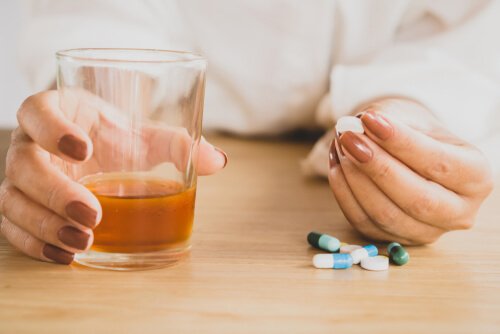5 Hard Facts about Antidepressants
In 2020, the World Health Organization identified more than 239 million people suffering from depression in all countries.
Work Health organization also pinpointed depression as the key cause of disability in the world. Recent studies have made helpful discoveries about depression. Yet, this condition continues to affect a ton of individuals. The stigma toward depression has still been prevalent up to this very day.
The Diagnostic and Statistical Manual of Mental Disorders defines depression as a major depressive condition. A major depressive episode (MDE) is a period where persistent and profound emotional lows, despair, and sadness are experienced. In most cases, people who were diagnosed with major types of depressions seek professional help. More often, antidepressants are prescribed to help them cope with their psycho-emotional bouts.
The Downward Spiral: Facts about Antidepressants
The success rate of using antidepressants has been phenomenal. With proper dosage, depression, even the chronic, and severe types have high possibilities to be normalized, if not completely addressed.
The following are the hard facts about antidepressants:
1. Antidepressants work hand in hand with psychotherapy to relieve the symptoms of depression.
These two are the sides of a coin. One will not work without the other. Psychotherapy gets into the mind of the patient while antidepressants get into the patient’s system. To explain further, psychotherapy uses sessions that address the needs of the patients. Antidepressants ‘give’ the chemicals that regulate neurotransmitters or the release of serotonin that affect the thinking and behavior of a person with depression.
2. Antidepressants should not be combined with other medications and alcohol.
If a person already had a medication, he should tell his doctor first before the latter gives him a prescription. Mixing the two may counter the effects of the other or aggravate the already existing medical condition.
In addition, combining antidepressants with alcohol negates the effects of the drug or even worsens the condition. For example, combining trazodone and alcohol may lead to extreme drowsiness, overdose, and even death.

3. Antidepressants are not stimulants and do not make a person “high”.
Contrary to popular belief, antidepressants are drugs prescribed to regulate the serotonin levels of a person. It also relaxes the nervous system as well as regulates brain functions.
However, a person taking antidepressants should not completely rely on the drug. Psychiatric sessions should always complement the medication. In addition, self-monitoring and discipline should be taken into consideration.
4. Antidepressants degrade a person’s condition.
Side effects are common to people taking antidepressants. But these are case-to-case bases. The adverse effects also depend on the dosage, overall health of the person, and the length of treatment.
Doctors prescribe custom-fit sessions and medicine since there is no one-size-fits-all mentality in curing depression. In this light, doctors choose wisely what type of antidepressants work best for a particular patient.
5. Antidepressants give horrible withdrawal symptoms.
Antidepressant withdrawal is possible if a person abruptly stops taking an antidepressant. Patients who have immediately stopped taking antidepressants especially not suggested by a doctor will experience withdrawal symptoms in 6 to 8 weeks.
However, a gradual form of withdrawal with professional assistance will not have an aggressive type of withdrawal.